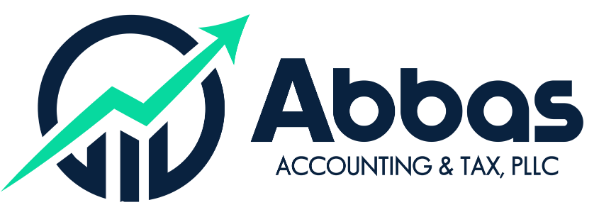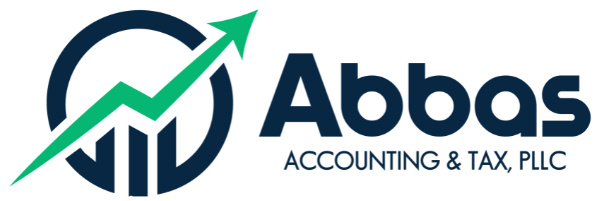Understanding Small Business Tax Deductions in 2025
Why Quarterly Bookkeeping Matters in 2025
Don’t wait until year-end quarterly bookkeeping helps prevent IRS penalties, catch red flags early, and drive smarter business decisions.
💡 Key Benefits
- ✅ Detect financial red flags early
- ✅ Prepare accurate estimated tax payments
- ✅ Improve decision-making with real-time insights
- ✅ Avoid bottlenecks at year-end
Q1 to Q4 Bookkeeping Checklist
🏦 Reconcile Bank & Credit Card Accounts
Ensure all income and expenses are matched. Use QuickBooks or Xero for automated syncing.
📊 Review Profit & Loss Statements
Spot trends and identify issues in revenue and expenses. Use insights to adjust your budget.
🧾 Track Estimated Taxes
Make quarterly IRS payments (especially LLCs/S-Corps). Use our Tax Deduction Guide to lower payments.
📁 Clean Up Chart of Accounts
Remove unused categories and align with IRS reporting. Keeps things tax-season ready.
📸 Collect & Categorize Receipts
Use tools like Expensify or Hubdoc to automate receipt uploads monthly.
👥 Update Payroll & Contractor Records
Ensure W-2s and 1099s are accurate, no surprises in January.
📄 File Sales Tax
Submit quarterly reports to the Texas Comptroller to avoid late fees.
📞 Meet with Your Accountant
Quarterly CPA check-ins keep your strategy strong. Book your free consultation.
🚀 Pro Tips for Success
- 🧾 Automate invoice and expense tracking
- 📁 Back up contracts, leases, and notices monthly
- 🔍 Track KPIs like burn rate, A/R aging, and gross margin
- 🧠 Use AI-powered accounting tools for alerts and automation
❓ FAQs
Q: How often should I review my books?
A: Monthly is best. But always do deep quarterly check-ins to avoid surprises.
Q: Can I do quarterly bookkeeping myself?
A: Yes, with a simple setup. As you grow, hiring a pro ensures accuracy and frees your time.
Q: Is it legally required in Texas?
A: Not legally—but if you collect sales tax or pay quarterly taxes, it’s highly recommended.
Conclusion: Quarterly bookkeeping isn’t busywork—it’s a growth tool. Clean, timely records help you avoid penalties, uncover savings, and position your business for long-term success in 2025 and beyond.
Schedule a free consultation with Abbas Accounting & Tax PLLC
Related Posts

Bookkeeping vs. Accounting: What Your Business Really Needs
Understand the difference between bookkeepers and CPAs—plus which one your business should hire in 2025.
Read More
Understanding Small Business Tax Deductions
Explore deductions like home office, Section 179, and QBI that can lower your business tax bill in 2025.
Read MoreEXCELLENTTrustindex verifies that the original source of the review is Google. Haider is an exceptional accountant. His CPA background and exceptional knowledge of the US tax code has been a great asset to my businesses. His work is very clean and thorough, while always making an effort to communicate with me each step of the way. I would highly recommend him for anyone looking to grow their business!Trustindex verifies that the original source of the review is Google. My husband and I can not tell you how grateful we are for Abbas Accounting & Tax. Haider is so helpful and very very knowledgeable. So many of our neighbors recommended him and we are glad we reached out. We now feel confident and actually have an understanding on how we SHOULD fill out our W4 and our taxes. We finally have a trusted tax & accounting expert that we will continue to utilize every year! Thank you!Trustindex verifies that the original source of the review is Google. I had an excellent experience with Abbas Accounting & Tax in Richmond. Their team is professional, knowledgeable, and genuinely cares about helping their clients. Haider Abbas made the process simple and stress-free, providing clear explanations every step of the way. Their expertise saved me both time and money on my taxes. I highly recommend Abbas Accounting & Tax to anyone seeking reliable, trustworthy, and friendly accounting services.Trustindex verifies that the original source of the review is Google. Haider has been incredibly helpful in guiding me through my tax filing process and helping me understand the advantages available to me. He took the time to explain everything clearly, making sure I was informed and confident in my decisions. Beyond just taxes, Haider also provided valuable insights into forming my LLC, helping me structure it in a way that benefits me both financially and legally. His expertise, professionalism, and willingness to go the extra mile truly set him apart.Trustindex verifies that the original source of the review is Google. I've known Haider Abbas for many years, and I can confidently say he is one of the most knowledgeable and trustworthy CPAs out there. He genuinely cares about his clients and takes the time to explain everything in a way that makes sense. Whether it’s tax preparation, accounting, or financial advice, he goes above and beyond to ensure accuracy and maximize savings. His professionalism, attention to detail, and commitment to client success truly set him apart. If you're looking for a reliable CPA who will always have your best interests in mind, especially when tax season is upon us, I highly recommend Abbas Accounting & Tax!Trustindex verifies that the original source of the review is Google. He’s done our taxes for over ten years and has saved us so much money every year. Haider has great knowledge and expertise with the ability to communicate effectively and adapt to our needs. It has been a pleasure working with him for over a decade! Highly recommend.Trustindex verifies that the original source of the review is Google. Best place to get your taxes done. Haider has great knowledge & expertise to handle your business or personal taxes.Trustindex verifies that the original source of the review is Google. Great service. Haider Abbas explains taxes in a simple manner and helps to make sure you are getting your full refund, by knowing the tax laws so well. Would highly recommend to everyone!Verified by TrustindexTrustindex verified badge is the Universal Symbol of Trust. Only the greatest companies can get the verified badge who has a review score above 4.5, based on customer reviews over the past 12 months. Read more


